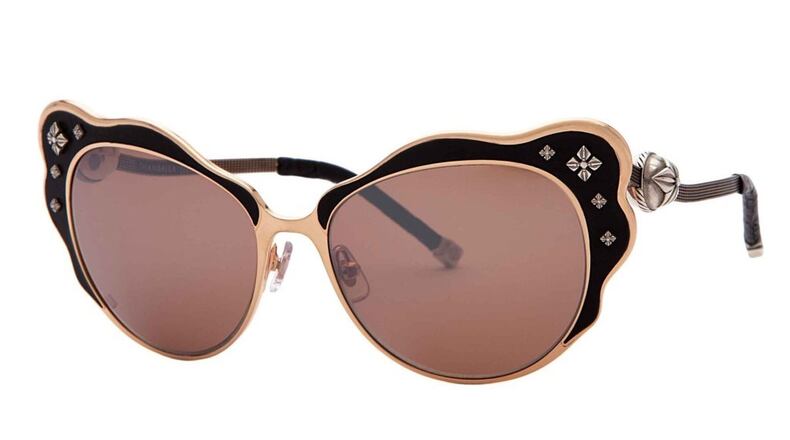The best way to protect your eyes is to slip on a pair of shades. Wearing sunglasses isn't just about fashion. Shades protect your eyes from harmful UV rays, says Wendy Salle, licensed optician and founder of Salle Opticians in Phipps Plaza.
Salle offers these five tips for choosing the right sunglasses for your face and your life:
How will you use your sunglasses? Will you be lounging by the pool or beach, or are you a runner, biker or boater? A sports frame is made to fit and perform differently than a fashion frame. Make sure your sunglasses fit your activity.
What is the right shape for your face? There are four basic face shapes: Heart, round, oval and square, and these sunglasses go best with each shape:
- Heart: Retro square and cat-eye shapes look best. Any frame that is wider on the top than the bottom work best.
- Round: Sharp, angular lines look best on a round face. Rectangle, square, wrap and shield compliment this shape.
- Oval: An oval face is the most versatile to fit. Oversized frames with color and texture work well.
- Square: Round and oval-shaped lenses help balance the sharpness of a square-shaped face. Aviator and Butterfly frames look great on square-shaped faces.
What lens color should you choose? It really comes down to preference, but you need to make sure and protect your eyes from UV light. Basically, wearing sunglasses without UV protection is more damaging that not wearing sunglasses, because your pupils will dilate behind dark lenses, letting in more harmful UV rays. Your optician can test your sunglasses to make sure you have 100% UV protection.
What about frame color? Have fun with all the colorful frames that are out today. From clear to opaque, ornamentation to basic black, there are hundreds of ways to express yourself.
How do you determine the best fit? Fit is important, as poorly fitted sunglasses may not provide enough protection and you may be less likely to wear them. When glasses are too small or too large, they may let in light from the sides. Your optician can show you how sunglasses should fit properly.
About the Author
Keep Reading
The Latest
Featured



